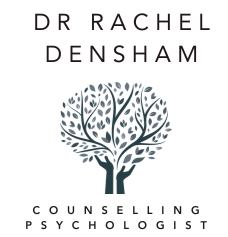Living with Obsessive-Compulsive Disorder (OCD)
Living with Obsessive-Compulsive Disorder (OCD) can be a debilitating and challenging experience marked by persistent, intrusive thoughts and often time-consuming, ritualistic behaviours. Those with OCD often find themselves trapped in a cycle of anxiety and compulsions that can significantly impact their daily lives.
Intrusive thoughts or obsessions flood their minds triggering intense anxiety. These thoughts are often senseless, repugnant and distressing. They may include fears of contamination by germs, of harming oneself or others, or of behaving unacceptably.
They occur against the individual’s will and lead them to engage in compulsive, repetitive behaviours as a way to alleviate anxiety or prevent a feared event from occurring. However, these rituals, such as washing hands excessively or checking things repeatedly, provide only temporary relief and do not address the root cause of the obsessions.
The impact of OCD also extends beyond the specific rituals: it can affect personal relationships, work, and overall quality of life. The constant battle against intrusive thoughts and the need to perform rituals can be exhausting and time-consuming, making it challenging to focus on other aspects of life. Associated feelings of shame and guilt can also impact negatively on an individual’s self-esteem and confidence.
Psychological therapy (in particular, Cognitive Behavioural Therapy (CBT)) is a widely recognised and effective treatment for OCD. As well as identifying an individual’s thoughts, feelings, physiological responses and behaviours around OCD, CBT for OCD also involves exposure and response prevention (ERP) during which individuals work with their therapist to confront their fears and anxieties gradually. Through controlled exposure to the thoughts or situations that trigger their obsessions, individuals learn to resist the urge to engage in compulsive behaviours. This process helps to rewire the brain's response to intrusive thoughts, to ease associated anxiety and, ultimately, to reduce the power that the OCD holds over the individual.
Therapists also work with individuals to identify and challenge the unhelpful, negative beliefs that underlie their obsessions. This process helps individuals develop healthier coping mechanisms and a more realistic perspective on their fears.
Living with OCD is a complex and distressing journey marked by persistent thoughts and ritualistic behaviours; but therapy offers a ray of hope by providing individuals with the tools to confront their fears, resist compulsions, and ultimately regain control over their lives.
Contact me for more information or to book an appointment:


